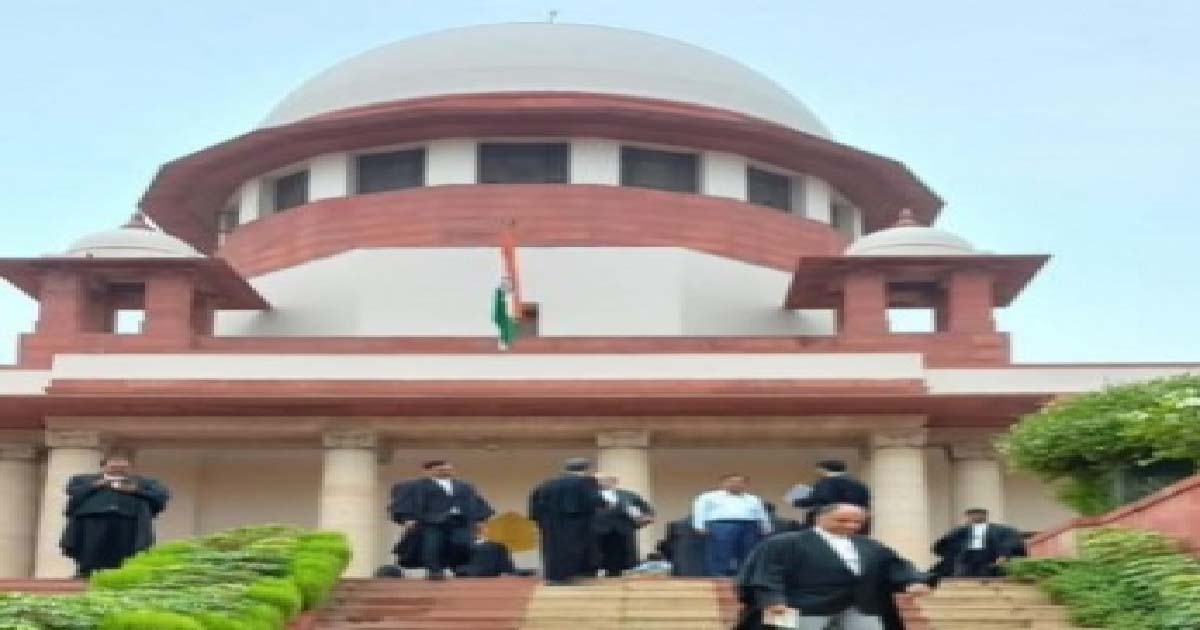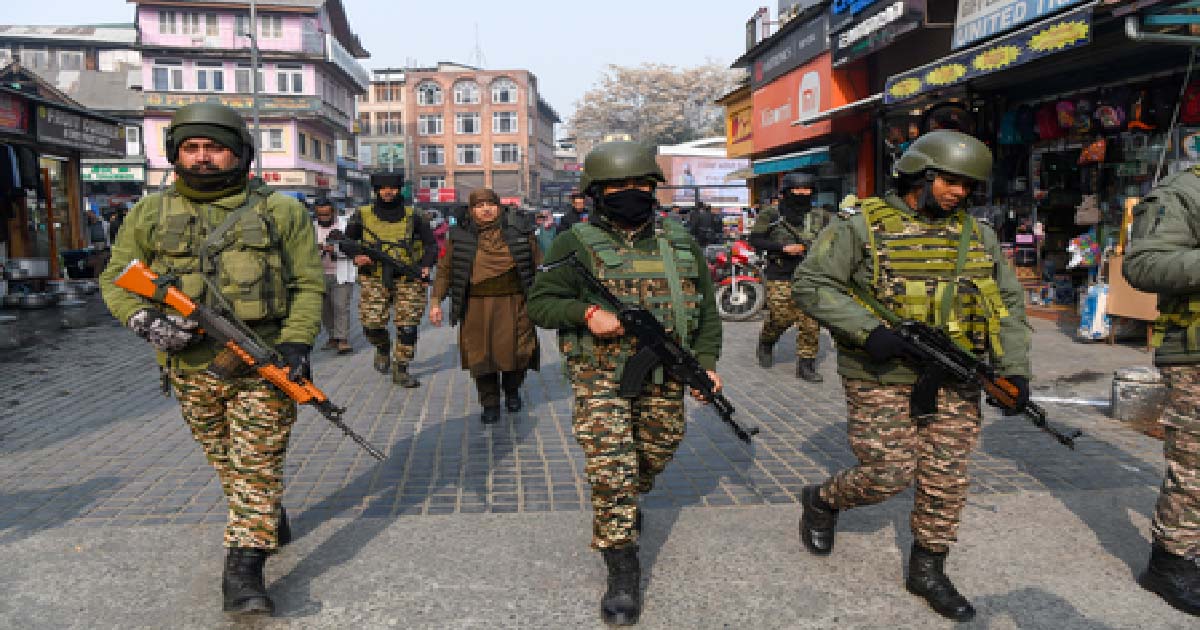National News
Bombay High Court directs MHADA, BMC to refund ₹5.19 crore to developer in 6 weeks
Mumbai: The Bombay High Court (HC) has directed the Maharashtra Housing and Area Development Authority (MHADA) and the BMC to refund over ₹5 crore paid by a developer towards a No Objection Certificate (NOC) for a redevelopment project undertaken at Versova, which never materialised due to Coastal Regulation Zone (CRZ) norms.
The HC was hearing a petition filed by SD SVP Nagar Redevelopment Pvt Ltd and its authorised signatory Leena Ranadive seeking that MHADA and the BMC be directed to return the amount.
According to the plea, MHADA owned a cluster plot at Versova which was developed and divided into 31 plots that were allotted to various individuals. These allottees then formed the Versova Andheri Shantivan Cooperative Housing Society Ltd. On the society’s application, MHADA and the society executed a lease deed dated October 15, 1993.
Structures required redevelopment
The society and its members constructed some buildings and tenements on this land, but by 2010, these structures were dilapidated and required redevelopment. In 2012, redevelopment rights were granted to the petitioner developer. The developer made an application to MHADA and even the society gave its nod. Since the society was a lessee from MHADA its consent was required for redevelopment. The authority asked for a payment of ₹5,19,20,186 which was paid by the developer. Of the total, some payments were to MHADA and some were to the BMC. However, the developer could not get final approval as the land falls under CRZ-II regulations.
An RTI query
On November 6, 2020, the developer wrote to MHADA seeking a refund and the NOC was cancelled on March 31, 2021, on the developer’s request. MHADA refunded a sum of ₹2,38,24,764 by RTGS in April 2021. However, the developer didn’t get returns from the BMC. An RTI query revealed that a certain amount has been transferred to the ‘Maharashtra Nivara Nidhi’ and would have to be routed back to MHADA for it to make a refund to the developer.
The court noted, “If the development does not happen and the NOC itself for redevelopment stands cancelled, then there is clearly a complete failure of consideration and there is no possibility of either MHADA or the MCGM retaining any part of the amount.” The HC asked the authorities to release the amount within six weeks.
National News
SC issues notice on plea to frame guidelines over ‘menstruation checks’

SUPRIM COURT
New Delhi, Nov 28: The Supreme Court on Friday sought responses from the Centre and the Haryana government on a petition highlighting the alleged humiliation of three female sanitation workers at Maharshi Dayanand University (MDU) in Rohtak, who were reportedly forced to furnish photographic proof of menstruation to their supervisors.
A bench of Justices B.V. Nagarathna and R. Mahadevan issued notice on the writ petition filed by the Supreme Court Bar Association (SCBA) under Article 32 of the Constitution.
The matter, now scheduled for hearing on December 15, raises concerns about protecting women’s rights to health, dignity, privacy, and bodily autonomy in workplaces and educational institutions during menstruation or related gynaecological issues.
The plea stems from an incident reported on October 26, when the three sanitation workers — called in on a Sunday due to the visit of the Haryana Governor — were allegedly “verbally abused, humiliated and pressured” by supervisors hired through the Haryana Kaushal Rozgar Nigam Limited.
According to the petition, the supervisors “demanded photographic proof from the workers by asking them to send photos of their sanitary pads”.
During the hearing, Justice Nagarathna-led Bench remarked that the episode reflected “a mindset” that was deeply troubling.
“In Karnataka, they are giving period leave. After reading this, I thought — will they ask for proof for giving the leave?” observed Justice Nagarathna.
“This shows the mentality of the person. If some heavy work could not be done because of their absence, somebody else could have been deployed,” the apex court added, expressing hope that “something good will happen in this petition”.
Following the incident, the MDU had suspended the two supervisors and initiated an internal inquiry. The Haryana State Commission for Women also took suo motu cognisance and sought reports from the varsity administration and the Rohtak police.
The Assistant Registrar and the two supervisors were subsequently booked under various provisions of the Bharatiya Nyaya Sanhita relating to assault and outraging the modesty of a woman.
Calling the episode “disturbing”, the SCBA in its petition said such acts amounted to a violation of the women’s fundamental right to life, dignity, privacy and bodily integrity under Article 21.
The plea also referred to similar instances of “period-shaming” and invasive checks in schools and workplaces over the years, including a 2017 case where 70 girls in Uttar Pradesh were allegedly stripped naked to check for menstrual blood, and a 2020 incident in Gujarat where 68 college students were asked to remove their underwear for inspection.
Filed through advocate Pragya Baghel, the petition has sought directions to the Centre and the Haryana government to conduct a detailed inquiry into the Rohtak incident and issue nationwide guidelines “to ensure that the right to health, dignity, bodily autonomy and privacy of women and girls is not violated when they are going through menstruation and related gynaecological issues at workplaces and educational institutions”.
National News
SC restrains Maharashtra SEC from exceeding 50 pc reservation in local body polls

SUPRIM COURT
New Delhi, Nov 28: The Supreme Court on Friday restrained the Maharashtra State Election Commission (SEC) from notifying reservations beyond 50 per cent in local bodies where elections are yet to be announced.
While allowing the already-notified polls to proceed as scheduled, a Bench of Chief Justice of India (CJI) Surya Kant and Justice Joymalya Bagchi said that the results in local bodies where the quota exceeds the 50 per cent ceiling will remain subject to the outcome of the petitions challenging OBC reservation in Maharashtra.
“The elections of municipal councils and nagar panchayats may take place as per the notified schedule. However, the results of local bodies where reservation exceeds 50 per cent will be subject to the result of the writ petition,” the CJI Surya Kant-led Bench ordered.
Directing the SEC to notify elections to zila parishads, municipal corporations, and panchayat samitis, the apex court added: “So far as other bodies, the state government and the SEC will be at liberty to initiate the election process. However, it is directed that reservation in all these institutions shall not exceed 50 per cent. This condition is also subject to the final outcome of the present proceedings.”
The bench referred the matter to a three-judge Bench and posted it for hearing on January 21.
After senior advocate Vikas Singh urged the court to issue a positive direction to ensure elections are not stalled further, the Bench ordered: “In Zila Parishads and Panchayat Samitis, wherever reservation does not exceed 50 per cent, let the elections be held in terms of the previous directions.”
Senior advocate Balbir Singh, appearing for the SEC, informed the top court that elections to 246 municipal councils and 42 nagar panchayats have already been notified for December 2, and that in 57 local bodies going to polls, the reservation limit of 50 per cent has been crossed.
In May this year, the Supreme Court had directed that local body elections be completed within four months, with OBC reservation restored in accordance with the pre-2022 J.K. Banthia Commission legal framework. It clarified that the polls shall be subject to the outcome of the petitions challenging the recommendations of the Banthia commission.
In a subsequent hearing held on September 16, the apex court pulled up the state authorities for failing to comply with its earlier direction to complete the election process by August this year, and again ordered the SEC to conduct local body polls in the state by January 31, 2026.
The apex court directed that the delimitation exercise be completed by October 31, adding that any delay in delimitation will not be a ground to defer the local body elections.
National News
J&K Police & CRPF carry out searches in Srinagar’s Lal Chowk

Srinagar, Nov 28: J&K Police and the Central Reserve Police Force (CRPF) carried out a cordon and search operation (CASO) in Srinagar’s Lal Chowk on Friday.
“The search operation was carried out as part of heightened security measures in the busy commercial centre,” an official said.
“Multiple teams conducted surprise inspections in several hotels and guest houses to verify records of visitors and ensure overall security compliance,” the official said, adding: “The operation continued for several hours; however, no suspicious activity was reported.”
J&K Police and other security forces have been carrying out aggressive anti-terrorist operations across the UT. These operations are focused on terrorists, their overground workers (OGWs), sympathisers, drug smugglers, and those involved in hawala money rackets and other unlawful financial activities.
This is part of the revised strategy by the security forces to dismantle the support system of terror rather than just focusing on the gun-wielding terrorists.
J&K has a 740-km-long line of control (LoC) and a 240-km-long international border (IB).
The army guards the LoC situated in Baramulla, Kupwara and Bandipora districts of the Kashmir Valley and Poonch, Rajouri, and parts of the Jammu district of the Jammu division.
The Border Security Force (BSF) guards the IB situated in Jammu, Samba, and Kathua districts of Jammu division.
The army and the BSF guard against infiltration, cross-border smuggling, and terrorist drone activity on the LoC and the IB, while the J&K Police and other security forces carry out anti-terrorist operations in the hinterland.
In the recent security review meeting, which was attended by senior officers of the army, paramilitary forces, J&K police, intelligence and senior civil administration officers, Lt Governore Manoj Sinha gave clear instructions to the security forces to target the support system of terrorism in the UT.
-

 Crime3 years ago
Crime3 years agoClass 10 student jumps to death in Jaipur
-

 Maharashtra1 year ago
Maharashtra1 year agoMumbai Local Train Update: Central Railway’s New Timetable Comes Into Effect; Check Full List Of Revised Timings & Stations
-

 Maharashtra1 year ago
Maharashtra1 year agoMumbai To Go Toll-Free Tonight! Maharashtra Govt Announces Complete Toll Waiver For Light Motor Vehicles At All 5 Entry Points Of City
-

 Maharashtra1 year ago
Maharashtra1 year agoFalse photo of Imtiaz Jaleel’s rally, exposing the fooling conspiracy
-

 National News1 year ago
National News1 year agoMinistry of Railways rolls out Special Drive 4.0 with focus on digitisation, cleanliness, inclusiveness and grievance redressal
-

 Maharashtra1 year ago
Maharashtra1 year agoMaharashtra Elections 2024: Mumbai Metro & BEST Services Extended Till Midnight On Voting Day
-

 National News1 year ago
National News1 year agoJ&K: 4 Jawans Killed, 28 Injured After Bus Carrying BSF Personnel For Poll Duty Falls Into Gorge In Budgam; Terrifying Visuals Surface
-

 Crime1 year ago
Crime1 year agoBaba Siddique Murder: Mumbai Police Unable To Get Lawrence Bishnoi Custody Due To Home Ministry Order, Says Report






















